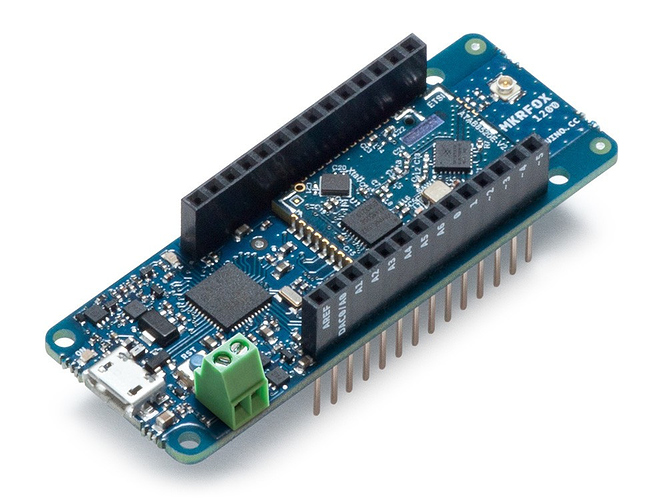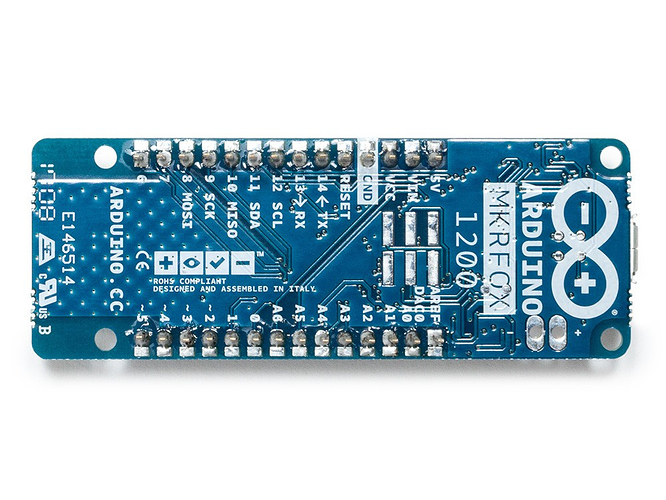- Atmel SAM D21: ARM Cortex M0+ MCU
- Atmel ATA8520: SigFox module
Description
Arduino MKRFOX1200 has been designed to offer a practical and cost effective solution for makers seeking to add SigFox connectivity to their projects with minimal previous experience in networking. It is based on the Atmel SAMD21 and a ATA8520 SigFox module.
The design includes the ability to power the board using two 1.5V AA or AAA batteries or external 5V. Switching from one source to the other is done automatically. A good 32 bit computational power similar to the Zero board, the usual rich set of I/O interfaces, low power SigFox communication and the ease of use of the Arduino Software (IDE) for code development and programming.
All these features make this board the preferred choice for the emerging IoT battery-powered projects in a compact form factor. The USB port can be used to supply power (5V) to the board. The Arduino MKRFOX1200 is able to run with or without the batteries connected and has limited power consumption.
Links
Specifications
Microcontroller SAMD21 Cortex-M0+ 32bit low power ARM MCU
Board Power Supply (USB/VIN) 5V
Supported Batteries(*) 2x AA or AAA
Circuit Operating Voltage 3.3V
Digital I/O Pins 8
PWM Pins 12 (0, 1, 2, 3, 4, 5, 6, 7, 8, 10, A3 - or 18 -, A4 -or 19)
UART 1
SPI 1
I2C 1
Analog Input Pins 7 (ADC 8/10/12 bit)
Analog Output Pins 1 (DAC 10 bit)
External Interrupts 8 (0, 1, 4, 5, 6, 7, 8, A1 -or 16-, A2 - or 17)
DC Current per I/O Pin 7 mA
Flash Memory 256 KB
SRAM 32 KB
EEPROM no
Clock Speed 32.768 kHz (RTC), 48 MHz
LED_BUILTIN 6
Full-Speed USB Device and embedded Host
LED_BUILTIN 6
Antenna power 2dB
Carrier frequency 868 MHz
Working region EU
Length 67.64 mm
Width 25 mm
Weight 32 gr.
Source: Arduino MKR FOX 1200

